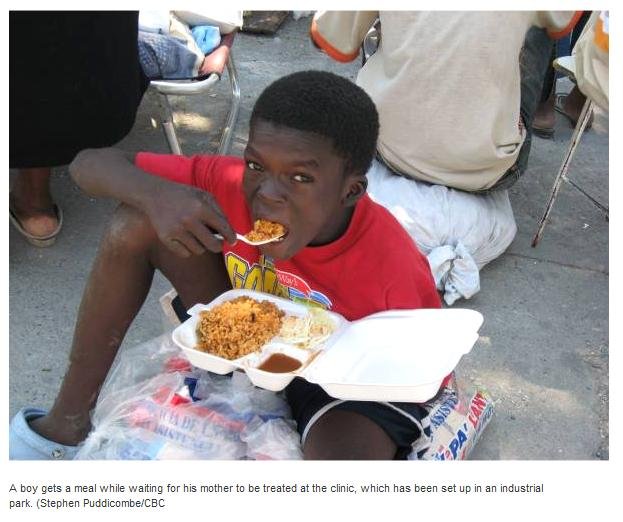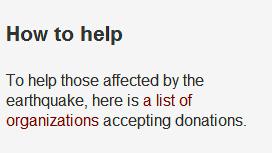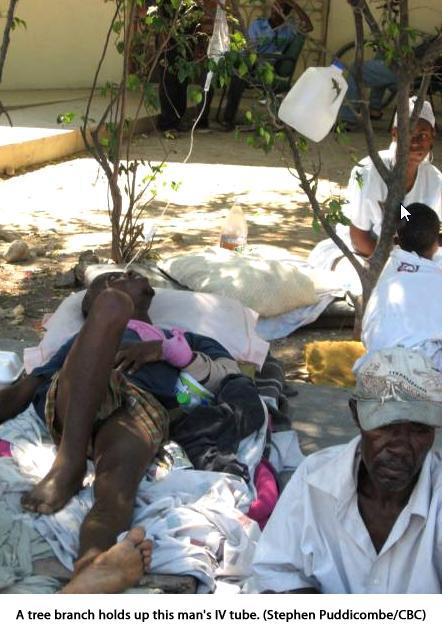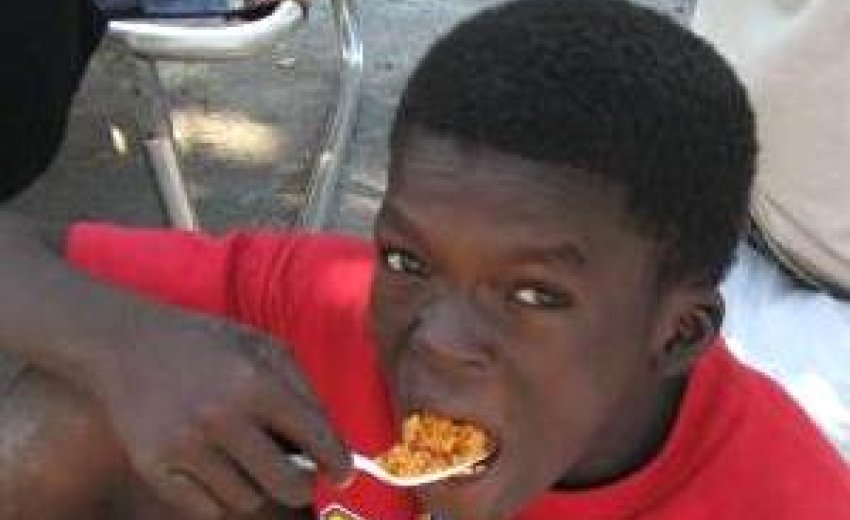

At least two million people are homeless in Haiti — 500,000 more than originally estimated — and officials fear an outbreak of disease among earthquake survivors living in makeshift camps.
"The next health risk could include outbreaks of diarrhea, respiratory tract infections and other diseases among hundreds of thousands of Haitians living in overcrowded camps with poor or non-existent sanitation," Dr. Greg Elder, deputy operations manager for Doctors Without Borders in Haiti, told The Associated Press. Medical clinics have 12-day patient backlogs, which means untreated injuries are festering.
Medical clinics have 12-day patient backlogs, which means untreated injuries are festering.
Medical workers struggled to care for the victims even as a pair of aftershocks rattled the Haitian capital, Port-au-Prince, on Thursday. The U.S. Geological Survey said one tremblor at 11:45 a.m. ET had a preliminary magnitude of 4.9.
The aftershocks sent rescue crews scrambling from the ruins of buildings where they were searching for possible survivors. They also sent residents out into the streets again. Since the Jan. 12 quake that ruined much of Port-au-Prince, about 50 aftershocks of magnitude 4.5 or more have hit the area.
Building collapses feared
According to the European Commission, many of the two million homeless are afraid to stay in their homes, fearing the buildings will topple in aftershocks.
The commission also believes that 250,000 are in need of urgent aid. While the death toll is estimated at 200,000, some say an exact tally will never be known. “I don’t think we will ever know what the death toll is from this earthquake,” Edmond Mulet, the newly appointed head of United Nations operations in Haiti, told the New York Times.
“I don’t think we will ever know what the death toll is from this earthquake,” Edmond Mulet, the newly appointed head of United Nations operations in Haiti, told the New York Times.
He said people are burying bodies by themselves, many have been thrown into dumps outside the city and an untold number still lie under the rubble.
About 80,000 are believed to have been buried in mass graves. Workers have been using earth-movers to carve out mass graves in Titanyen, north of Port-au-Prince, to bury 10,000 victims in a single day .
About 100 surgeons, nurses and medics with the 1st Canadian Field Hospital will deploy to Haiti beginning this weekend, CBC News has confirmed.
The mission will be based in Jacmel, a city of 80,000 near the capital that has an airstrip already in use by the Canadian military. The unit will set up a hospital with an intensive-care unit and up to 50 beds.
Two surgical teams, including a general surgeon and an orthopedic surgeon, will be in charge.
As donations for Haiti pour in from people around the world, the United States has passed a bill allowing faster tax breaks for U.S. donors.
It would allow donations made by the end of February to be deducted from 2009 tax returns. So far, Ottawa has not made a similar decision for Canadians who donate to the Haitian relief effort.
Meanwhile, reports continue to emerge about survivors being found more than a week after the Jan. 12 quake.
On Wednesday, a five-year-old boy was pulled out of the rubble from his home by his uncle. The boy, identified as Monley Elize, was severely dehydrated but in otherwise good condition. His parents are believed to have been killed in the quake.
Experts have said that without water, buried quake victims were unlikely to survive beyond three days. But rescuers continue to scour through the rubble of destroyed homes and buildings, looking for any signs of life.
